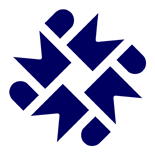GCSE Computer Science
In Computer Science, students will develop skills to use computational thinking and creativity to understand and change the world. Computing has deep links with Mathematics, Science, and Design and Technology. It provides insights into both natural and artificial systems. The core of Computing is Computer Science, in which pupils are taught the principles of information and computation, how digital systems work, and how to put this knowledge to use through programming. Building on this knowledge and understanding, pupils are equipped to use information technology to create programs, systems, and a range of content.
Computer Science ensures that pupils become digitally literate able to use information and communication technology, at a level suitable for the future workplace and as active participants in a digital world.
Students will be able to demonstrate the ability to communicate effectively, both orally and in writing especially when explaining a highly-technical subject to an unfamiliar audience. They will have developed problem-solving skills by being able to see the bigger picture to understanding how a process can be carried out more efficiently and details of how to make it happen. These skills will also be needed in the workplace for team management issues such as budget planning and allocating resources to meet deadlines.
Students will establish the collaborative skills needed to maintain a solid working relationship with their peers. Development processes, like pair programming where one programmer writes code while another simultaneously reviews it, places a lot of importance on their ability to work constructively alongside others. Students will demonstrate effective research skills due the curiosity of finding solutions leading to continuous improvement.
The skills students master will enable them to enter the world beyond the school as good citizens and valued employees.
We aim to:
- Increase pupils’ confidence in using computers and develop their understanding of the digital world and its practices.
- Create an engaging curriculum that encourages pupils to want to learn more about computers and how they work.
- Encourage pupils to make use of computational thinking and problem-solving abilities.
- To educate pupils on using computers and the internet both safely and ethically.
- Encourage the use of both numeracy and literacy within their projects.
Course content
The OCR GCSE Computer Science (J277) course consists of two examinations papers covering the following components of work:
Component 01: Computer systems – 1 hour 30 min paper, 50% weighting (Calculators not allowed)
Introduces students to the central processing unit (CPU), computer memory and storage, data representation, wired and wireless networks, network topologies, system security and system software. It also looks at ethical, legal, cultural and environmental concerns associated with computer science.
Component 02: Computational thinking, algorithms and programming – 1 hour 30 min paper, 50% weighting
Students apply knowledge and understanding gained in component 01. They develop skills and understanding in computational thinking: algorithms, programming techniques, producing robust programs, computational logic and translators.
Practical programming
Students are to be given the opportunity to undertake a programming task(s) during their course of study which allows them to develop their skills to design, write, test and refine programs using a high-level programming language. Students will be assessed on these skills during the written examinations, in particular component 02 (section B).
An outline of what students will study during their time at Murray Park School throughout GCSE computing is set out in the table below:
Term |
Year 10 |
Year 11 |
Autumn Term |
Hardware and software
Data Representation (first half) |
Algorithms
Programming (Practical & theory) |
Spring Term |
System Architecture memory and storage
Wired and wireless networks |
Robust systems
Boolean Logic and Languages
|
Summer Term |
Systems software and security
Ethical Legal and environmental concerns |
Revision – Paper 1
Revision – Paper 2 |

